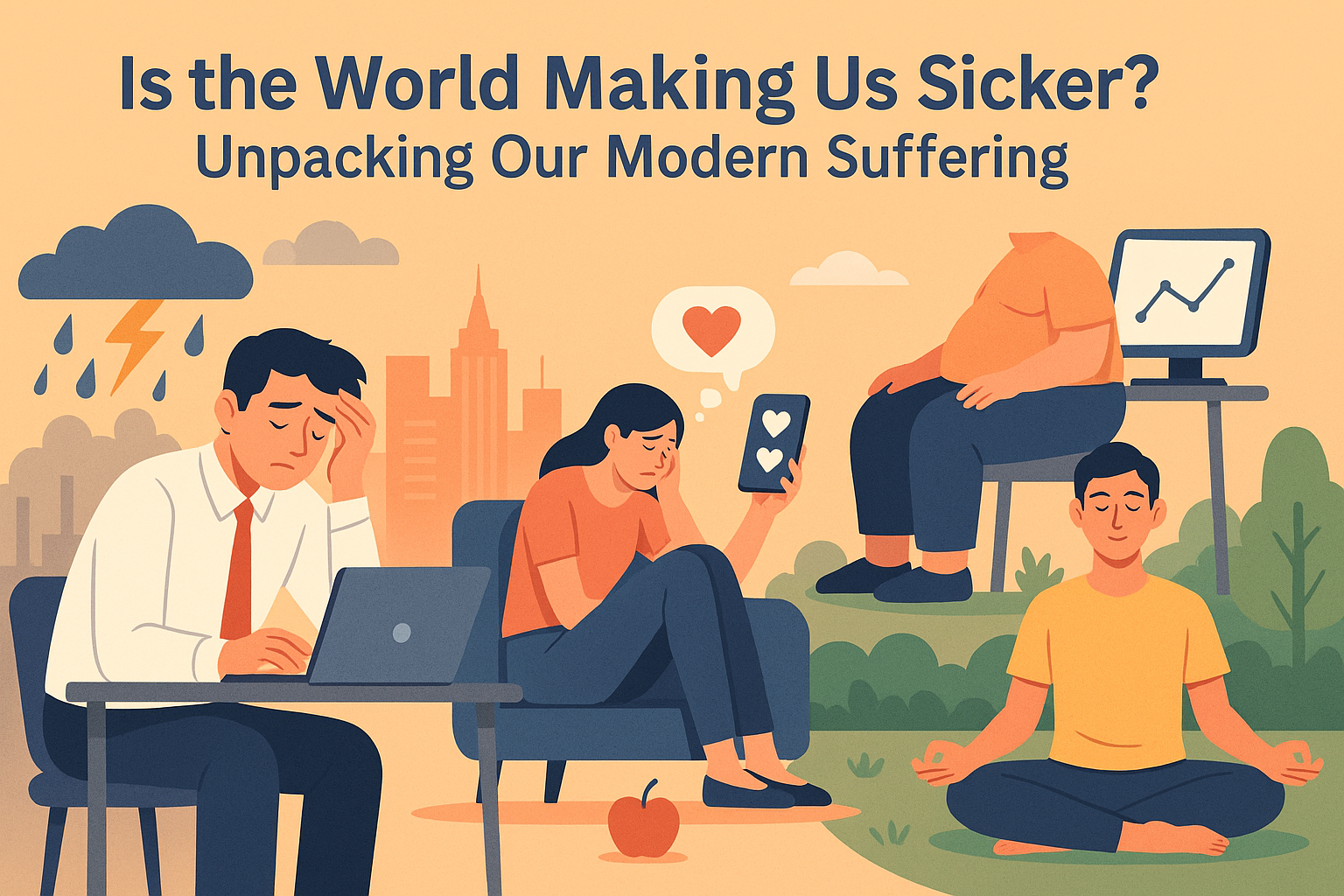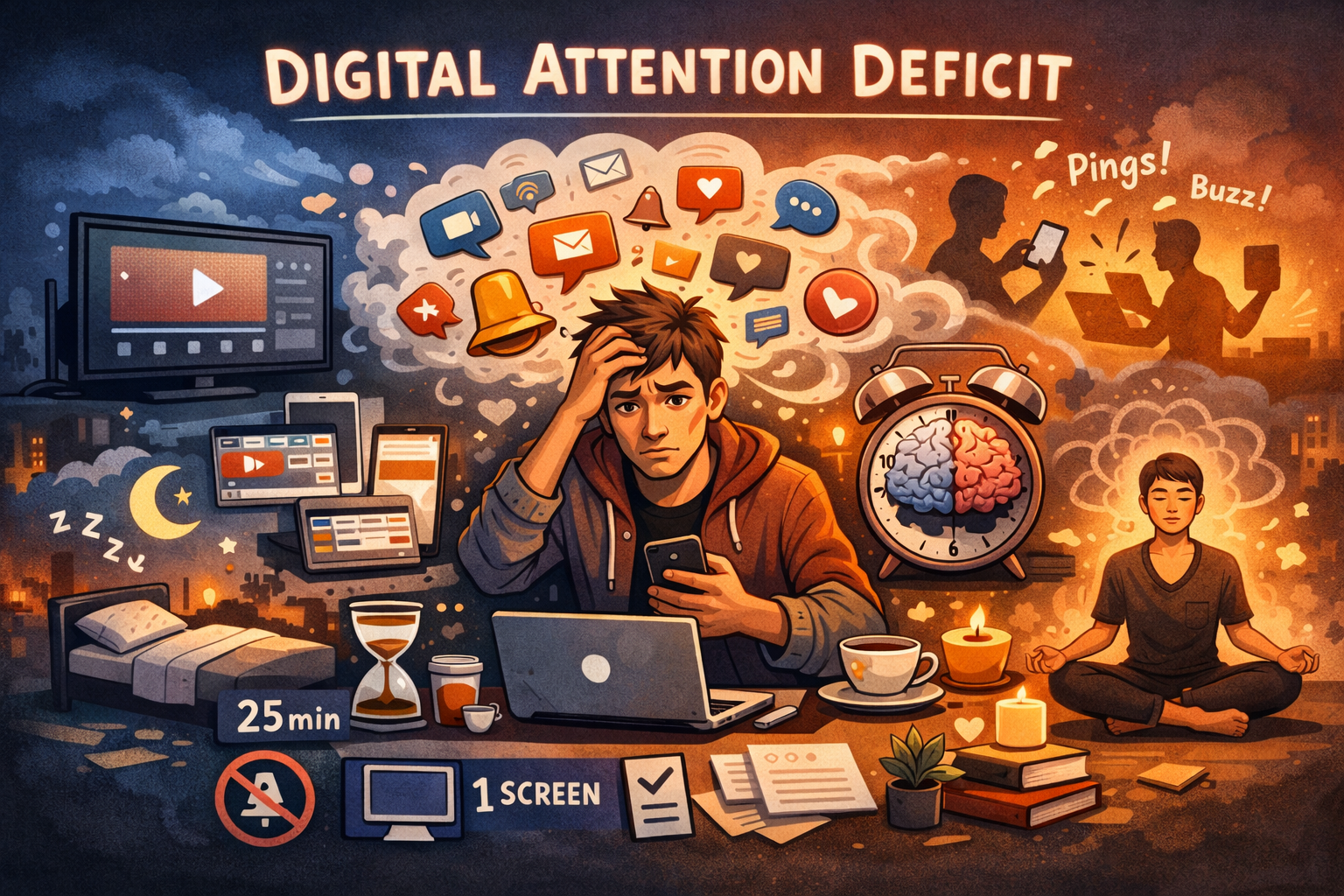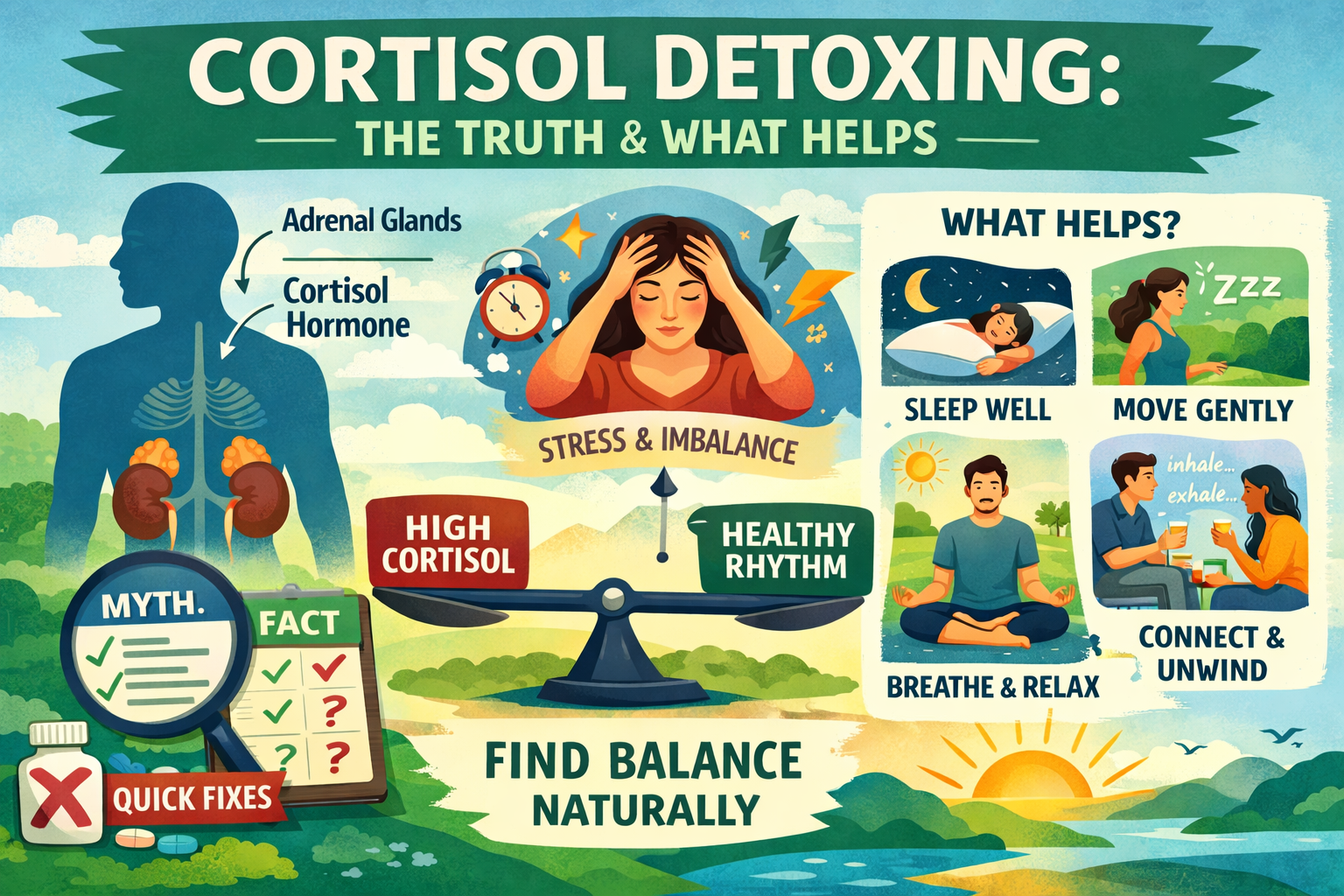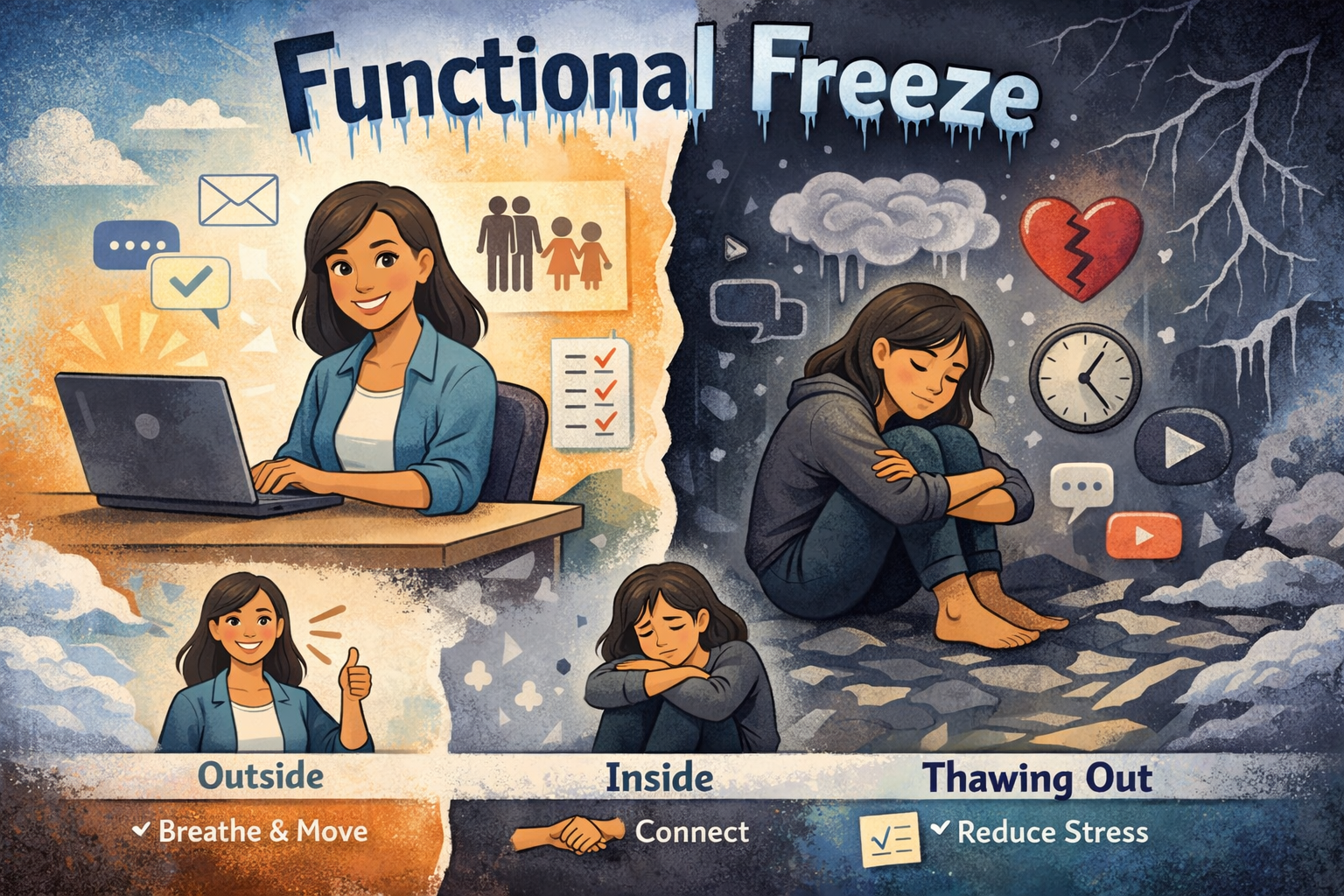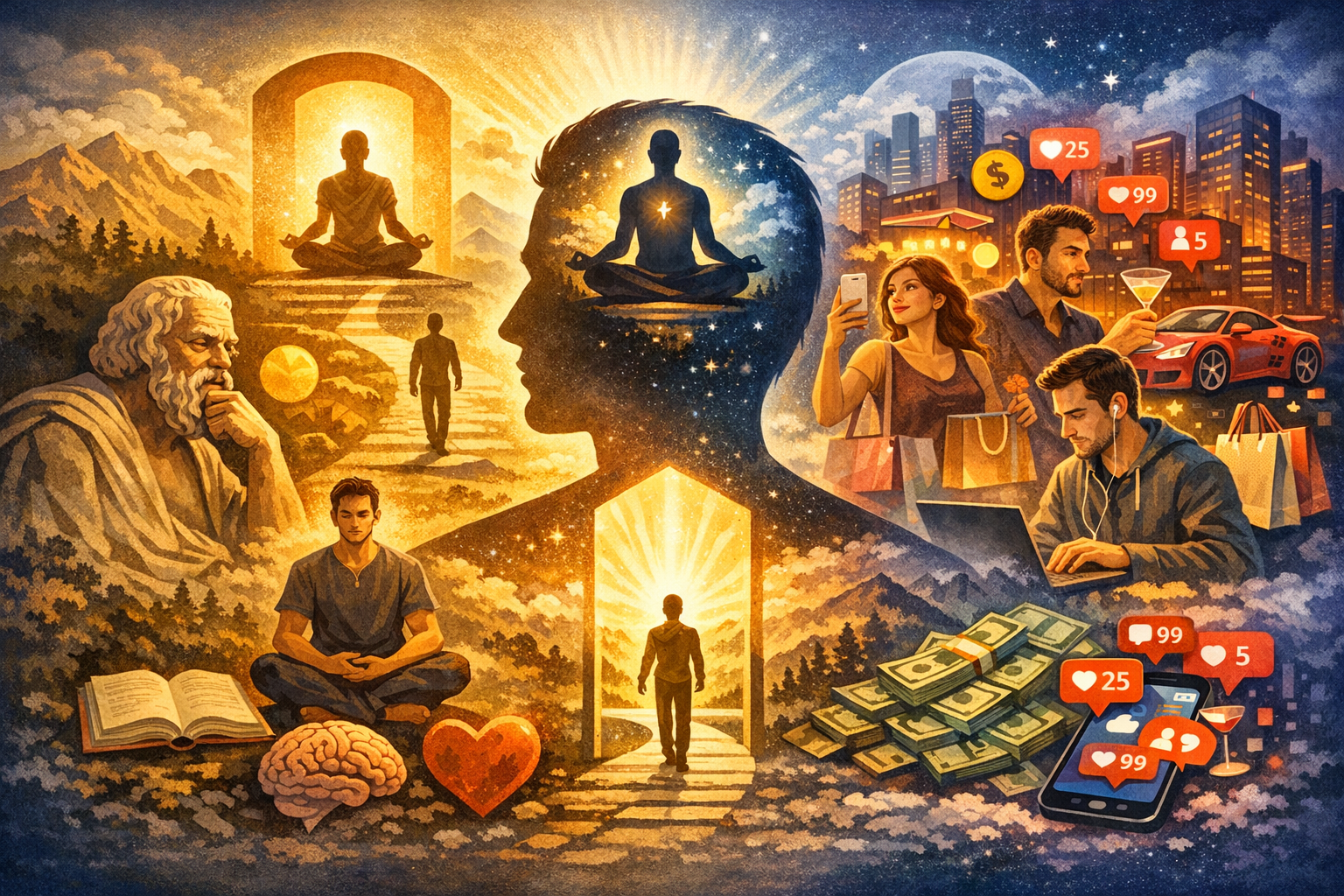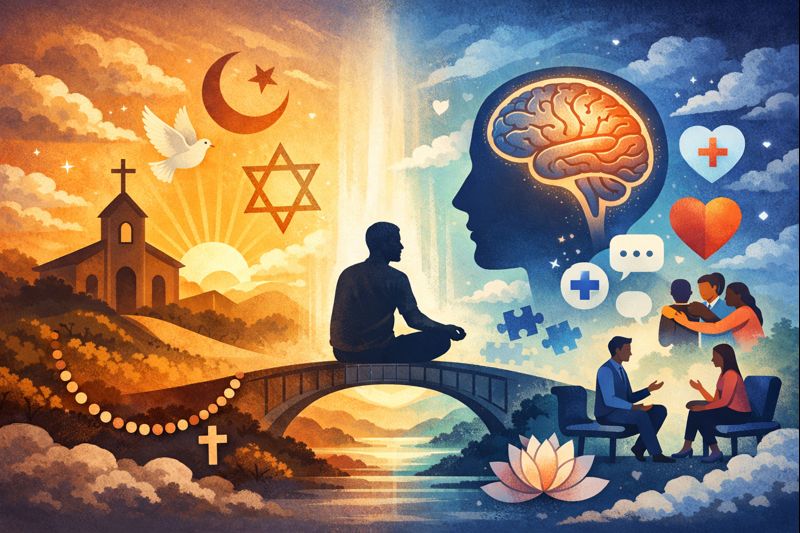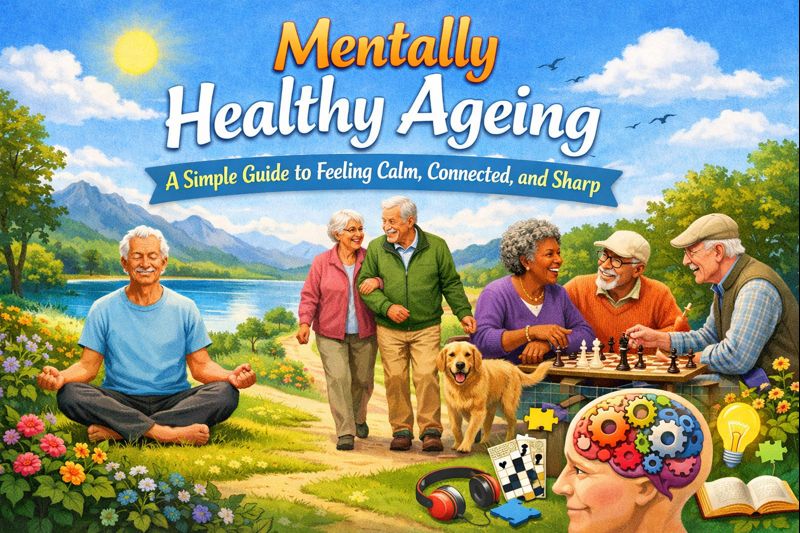Have you ever felt overwhelmed by the stressful and high paced life, information overload, economic and job uncertainty, impact of climate change (especially in India) and above all, the pressure to succeed. We are increasingly experiencing the feeling that something is not quite right - despite everything seems to be okay on the outside? Life is becoming more difficult for vast population, either they are struggling for necessities of life or just surviving, certainly not thriving.
You are not alone.
Even though we live longer, have better technology, and more convenience than ever before, our mental and physical health is in deep trouble. In fact, research shows that modern society might be making us more anxious, lonely, and sick than we realize.
Let us explore how the modern world is affecting us—and what we can do to heal.
1. The Silent Epidemic of Stress and Anxiety
A 2023 report by the World Health Organization revealed that anxiety and depression increased by 25% worldwide since the COVID-19 pandemic. But even before that, chronic stress was already rising.
In the U.S., the American Psychological Association found that over 75% of adults report physical or emotional symptoms of stress, including fatigue, headaches, and sleep disturbances.
Why is this happening?
We’re constantly connected, but rarely present. The “always-on” culture, where work follows us home and phones never stop buzzing, has created a reality where our minds rarely rest.
As philosopher Blaise Pascal once said:
“All of humanity’s problems stem from man’s inability to sit quietly in a room alone.”
2. Loneliness in the Age of Social Media
Despite having hundreds of online friends, more people than ever feel lonely and disconnected.
A 2020 study by Cigna showed that 61% of Americans reported feeling lonely, with Gen Z and Millennials reporting the highest levels.
This loneliness is not just emotional—it is physical. Loneliness increases the risk of premature death by 26%, according to research published in Perspectives on Psychological Science.
We are wired for real human connection, not just likes and shares. Yet modern life often replaces depth with speed, presence with distraction.
3. The Burden of Comparison and Perfectionism
Social media, advertising, and workplace culture constantly push us to compare ourselves to others. This fuels perfectionism and low self-worth.
A study from The University of Bath found that perfectionism among young people has risen by 33% since 1989. The more people chase unrealistic standards, the more they suffer from anxiety, depression, and burnout.
As philosopher Epictetus wrote:
“Wealth consists not in having great possessions, but in having few wants.”
But modern life encourages us to keep wanting more—beauty, success, status—without ever feeling complete.
4. Disconnection from Nature and the Body
Urban life and digital screens have pulled us away from nature and even from our own bodies.
The average adult now spends over 11 hours a day in front of screens (Nielsen Report). This sedentary lifestyle contributes to chronic health conditions like obesity, diabetes, and heart disease.
More than just physical harm, this disconnection reduces emotional well-being. A 2019 study from the University of Exeter found that people who spent at least 2 hours a week in nature reported better health and greater happiness.
We’ve forgotten the healing power of a walk in the woods, a deep breath under open skies, or feeling the earth under our feet.
5. Information Overload and Decision Fatigue
Every day, we are bombarded with choices—what to eat, wear, click, like, buy, read. While freedom of choice is good, too many decisions can cause mental exhaustion.
Psychologist Barry Schwartz calls this the “Paradox of Choice.” His research shows that more choices often lead to more regret, less satisfaction, and even paralysis.
Our brains were not designed to handle this much input. We need simplicity, clarity, and boundaries—yet our world gives us the opposite.
6. The Lost Art of Stillness
In our fast-moving world, stillness has become rare. Productivity is praised, while rest is seen as laziness.
But philosophers and spiritual leaders across history have spoken about the power of silence and stillness.
Lao Tzu, the ancient Chinese philosopher, said:
“To the mind that is still, the whole universe surrenders.”
Science backs this wisdom. Meditation and mindfulness are now proven tools to reduce stress, improve focus, and support emotional regulation.
A 2014 study published in JAMA Internal Medicine found that mindfulness meditation significantly reduces symptoms of anxiety, depression, and pain.
7. Reclaiming Meaning in a Distracted World
At the heart of our suffering is often a lack of meaning. When we feel that our lives have no purpose beyond routine, we begin to lose energy, motivation, and joy.
Dr. Viktor Frankl, in his book Man’s Search for Meaning, wrote:
“Those who have a ‘why’ to live, can bear almost any ‘how’.”
Studies confirm this: a 2010 research study from Rush University Medical Centre found that older adults with a strong sense of purpose lived longer and had lower rates of Alzheimer’s disease.
Meaning protects us. It strengthens us. But meaning does not come from outside—it grows from within, when we ask deeper questions and align with our values.
Conclusion: Can We Still Thrive in This World?
The modern world has given us much—but it has also brought hidden costs. Yes, the world is fast, noisy, and overwhelming—but we can choose a different way.
We can unplug. Slow down. Go inward. Connect more deeply—with nature, people, and ourselves.
Healing begins when we stop chasing and start noticing.
Let us not just survive in this modern age, but learn how to live life to the fullest, even in the midst of it
Are you looking for inner peace, deep relaxation or holistic solutions for mental health? Visit http://themindtherapy.in - your space for online counselling/therapy, free mental health tests, meditation, sound therapy etc.
Mind Therapy is India's trusted platform for mental health, mindfulness, and holistic healing. Explore expert-led programs, guided meditation, sound therapy and counselling at http://themindtherapy.in


